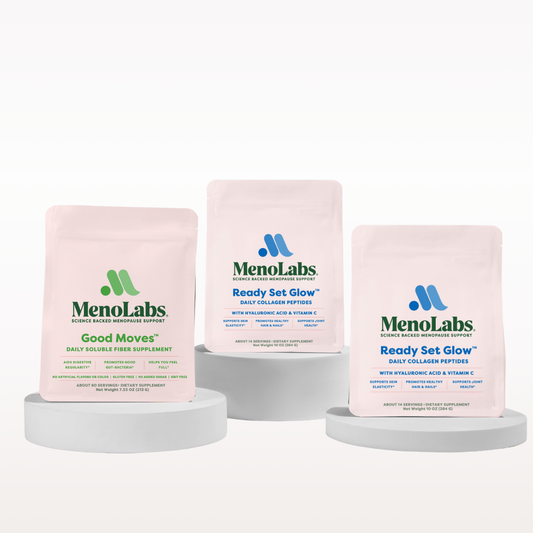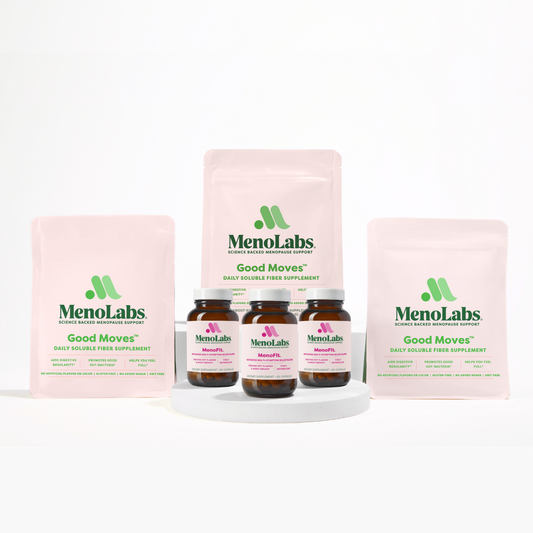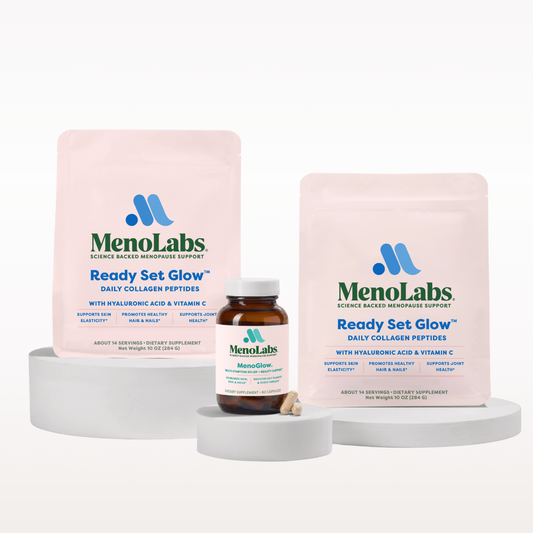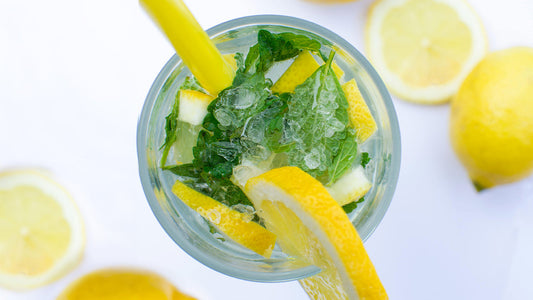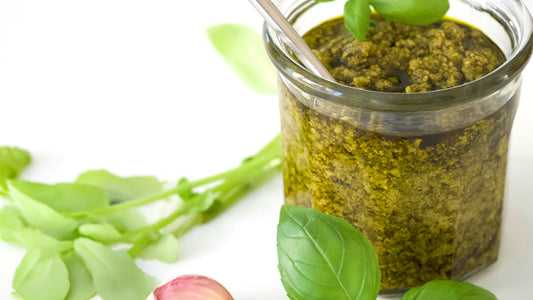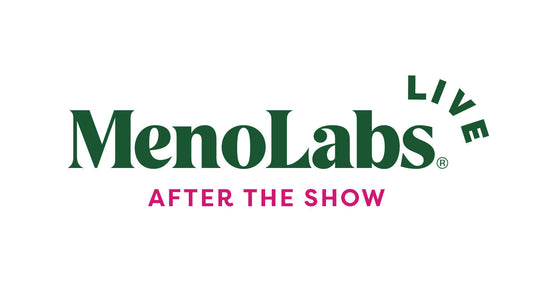Providing your body with the right balance of vitamins and minerals is an important part of staying fit and healthy. But as peri/menopause may bring about numerous changes in the body, those vitamin and mineral needs may change. Here's how to stay abreast of the vitamins you need during your menopause transition — vitamins you may never have thought about in the past.
Vitamin K Plays a Vital Role in Calcium Absorption
Declining estrogen levels during peri/menopause cause a decrease in bone density, which can lead to osteoporosis. Because of this, it is vital to consume enough calcium and other bone support nutrients, such as vitamin D and magnesium, during perimenopause. Vitamin K is essential because of the role it plays in directing calcium to be stored in the bones rather than in the soft tissues like the arteries. By slowing the calcification of arteries, the calcium-directing activity of Vitamin K is also vital for blood vessel health. Vitamin K also supports vitamin D maintain bone density.
Why is it Important to Get Enough Zinc During Peri/menopause?
Zinc plays a role in numerous key bodily processes.
- Maintaining healthy levels of zinc in the body can help to stabilize cortisol levels in the bloodstream. Supplemental intake of zinc has also been shown to inhibit cortisol secretions temporarily.
- As we age, our metabolism slows down. Zinc plays a role in the metabolism and regulation of thyroid hormones. Thyroid hormones, in turn, are integral in regulating various aspects of the body’s metabolism.
- Zinc can help to boost immunity and reduce inflammation; immunity is typically weakened during perimenopause due to reduced estrogen levels.
- For those suffering from menopausal mood swings, zinc supplementation can help to reduce depression and stabilize moods.
B-Vitamins are Vital During Menopause
Several B-vitamins play a roles in keeping us healthy, especially during peri/menopause.
- Vitamin B6 helps to make serotonin, the primary hormone responsible for mood stabilization and feelings of well-being. As women age, levels of serotonin decrease.
- Another side effect of aging is that the human body is less able to absorb vitamin B12. A B12 deficiency can cause lethargy, loss of appetite, depression, confusion, balance problems, and more. Therefore, it is essential to eat plenty of foods containing Vitamin B12 or take a supplement.
Common Vitamin Deficiencies in Women
Many women may know that a vitamin C deficiency can lead to a weakened immune system, lack of energy, and even scurvy if left untreated for a prolonged period of time. However, there are other vitamin deficiencies we also need to keep an eye out for.
- An iodine deficiency may cause thinning hair, tiredness, weight gain, and leave you feeling cold all the time.
- As we age, our bodies assimilate significantly less vitamin D from the sun. Vitamin D deficiencies can result in weaker bones, depression, obesity, and type 2 diabetes.
- A calcium deficiency can lead to decreased bone density and osteoporosis.
- An iron deficiency can cause anemia. This is characterized by lethargy, shortness of breath, dizziness, brittle nails, and a sore, swollen tongue.
- The symptoms of a folate deficiency can be very subtle. Gray hair, tiredness, tongue swelling, and mouth sores are a few possible symptoms.
How to Get Enough Vitamins and Minerals from Your Diet
The healthiest way to make sure that you consume sufficient vitamins and minerals is to eat a well-balanced diet. Make unprocessed foods, fresh fruits and vegetables, whole grains, and legumes a large portion of your diet. Taking a probiotic can help to establish a healthy gut flora that is more efficient at absorbing nutrients.
Green leafy vegetables, cheese, butter, meat, eggs, and fermented vegetables (for example, kimchi and sauerkraut) are excellent dietary sources of the K-vitamins.
Zinc is found in oysters, red meat, poultry, beans, nuts, and dairy products.
The vitamin B-complex comprises eight B-vitamins; B1 (thiamine), B2 (riboflavin), B3 (niacin), B5 (pantothenic acid), B6 (pyridoxine), B7 (biotin), B9 (folate), and B12 (cobalamin). Here is a brief list of a few of the best B-vitamin foods:
- Salmon contains most of the B-vitamins. It is an excellent source of B12, B3, B6, and B2.
- Liver and other organ meats are a superb source of all the B-vitamins.
- Riboflavin can be found in milk and dairy products.
- Yogurt contains beneficial amounts of vitamin B2 and B12.
- Eggs are a great way to get in your daily dose of biotin.
- Leafy green vegetables are a super source of folate.
- Nutritional and brewer’s yeast are excellent sources of most of the B-vitamins.
- Good quantities of Vitamin B3, B6, and B12 are found in beef.
- Legumes are a super source of folate and contain B1, 2, 3, 5, and 6, too.
- Pork is an excellent source of thiamine.
- Chicken and turkey (especially white meat) are good sources of vitamin B3 and B6.
It is not always easy to get enough of these essential vitamins and minerals in our diets. As we age, our bodies are increasingly less capable of extracting healthy nutrients from our food during digestion. Consult with your doctor about your vitamin and mineral levels, and take supplements if necessary.
Related Products
Blend Besties Bundle
Fresh Start Bundle
4.7 / 5.0
(553) 553 total reviews







